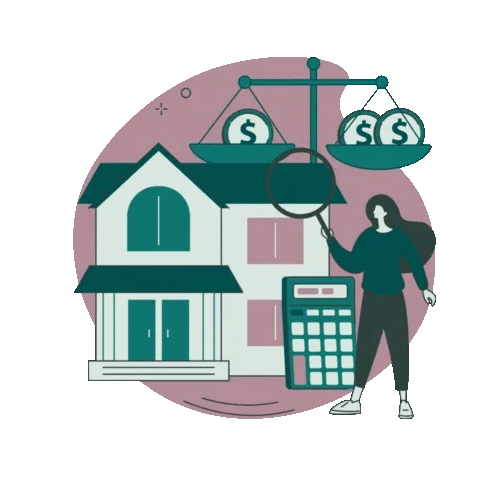Mortgage Payment Strategies Guide: Everything Canadians Need to Know
Are you looking for ways to lower your interest costs, pay off your mortgage faster, or simply stress less about your monthly payments? You’re in the right place! This Mortgage Payment Strategies in Canada guide will show you simple, effective tips and tricks for homeowners, whether you’re a first-time homebuyer, a refinancer, or someone looking for affordable mortgages. We’ll keep it conversational and easy, so you’ll feel confident about taking action.
(Need to see how changes in payments might affect your budget? Try our Comprehensive Mortgage Payment Calculator or check out one of our over 50 blog posts for more insights!)

On this Page
Introduction: Why Mortgage Payment Strategies in Canada Matter
When it comes to mortgage rates in Canada, the numbers can feel confusing. But how you pay your mortgage can be just as important as where you get it. Different mortgage payment strategies—like accelerated payments, lump sums, or paying a bit more each month—can slash years off your loan term and save you thousands in interest.
What You’ll Learn
- How mortgages work in Canada and why each payment includes both interest and principal.
- Practical payment strategies to help you pay down your loan faster (like bi-weekly schedules or lump-sum prepayments).
- The pros and cons of each strategy, plus real-life Canadian examples.
- Tools and calculators you can use right now to see if these strategies fit your situation.
Goal: By the end, you’ll know exactly which method makes sense for your personal and financial goals—because a mortgage doesn’t have to be a lifelong burden!
Section 1 – Understanding Mortgage Basics in Canada
Before we jump into advanced payment strategies, let’s cover the basics of a Canadian mortgage.
Amortization vs. Term
- Amortization is the total length of time you have to pay off the mortgage (often 25 years).
- Term is how long your current mortgage agreement lasts (often 5 years). At the end of a term, you can renew or switch lenders.
Principal vs. Interest
- Principal: The amount you originally borrow (plus any additions if you refinance).
- Interest: The extra cost the lender charges you monthly or bi-weekly for the loan.
(For more on how your monthly payments break down between principal and interest, check out the Reverse Mortgage Calculator or the Compare and Save Calculator to see if you could do better with a different structure.)
Section 2 – Popular Mortgage Payment Strategies in Canada
Now that we know the basics, let’s explore the actual mortgage payment strategies in Canada that can save you money and time.
1. Accelerated Payments
Bi-Weekly Accelerated
Instead of paying once a month (12 payments a year), you pay every 2 weeks—resulting in 26 payments annually. That’s basically one extra monthly payment each year, which chips away at your principal faster.
- Real Example: If your monthly payment is $1,000, switching to accelerated bi-weekly might mean you pay $500 every two weeks, totaling $13,000 a year instead of $12,000—an extra $1,000 straight to principal.
Weekly Accelerated
Similar concept—weekly payments mean 52 payments a year. This approach can feel easier for budgeting if you’re paid weekly.
Curious how quickly you’ll pay down principal with accelerated payments? Use our Comprehensive Mortgage Payment Calculator to find out.
2. Lump-Sum Prepayments
A lump sum is a chunk of money you apply directly to your mortgage’s principal balance. Many mortgages in Canada allow a certain percentage (often 10-20% of the original balance) as a penalty-free payment each year.
- When to do it: If you get a bonus, inheritance, or tax refund, you can throw some (or all) of that onto your mortgage.
- Why it helps: Reduces the principal immediately, so future interest calculations shrink.
(Check your mortgage contract or talk to your lender about prepayment privileges to avoid any unexpected fees.)
3. Increasing Your Regular Payment
If your mortgage allows it, you can boost your monthly, bi-weekly, or weekly payment by a certain percentage without penalty. This adds a bit more money toward the principal each time.
- Example: If your payment is $1,000 monthly, raising it by 10% to $1,100 means an extra $100 tackling your principal. Over time, that can cut years off your mortgage.
4. Recasting Your Mortgage
Recasting means making a significant lump-sum payment and then asking the lender to recalculate (re-amortize) your payments based on the new lower balance. This can lead to lower monthly payments for the same term.
- Note: Not all lenders in Canada offer recasting. Check with your lender or speak to a mortgage broker to see if it’s an option.
Refinancing for Better Terms
When you refinance, you replace your current mortgage with a new one—often at a lower rate or with different terms. This can help if mortgage rates in Canada have dropped or if you want to extend your amortization for smaller monthly payments (though you might pay more interest over the long run).
(Refinancing can also be a debt consolidation solution—rolling high-interest debt into your mortgage. Check out our Debt Consolidation Calculator to see if that’s right for you.)
Section 3 – Choosing the Right Strategy
Consider Your Budget & Goals
- Aggressive Pay-Down: If your main goal is to become mortgage-free ASAP, pick accelerated schedules and lumps sums whenever possible.
- Monthly Cash Flow: If you need a lower monthly obligation, you might avoid big lumps and consider a longer amortization or refinance for a smaller payment.
Check Prepayment Privileges & Penalties
- Many Canadian mortgages let you pay a certain portion extra each year.
- Some have strict limits—exceed them, and you face a penalty.
Talk to a Mortgage Professional
If you’re unsure, a mortgage broker can walk you through different scenarios, show you which approach saves the most money in your case, and explain your lender’s rules. They can also keep you informed about affordable mortgages or first-time homebuyer tips you might qualify for.
Section 4 – Real-Life Example: Frank’s Mortgage Journey
Frank has a 25-year amortization at a 5-year fixed rate, paying $1,200 monthly. He decides to:
- Switch to Accelerated Bi-Weekly: Now he pays $600 every two weeks. Over 12 months, that’s $15,600 instead of $14,400—an extra $1,200 a year!
- Use a $5,000 Tax Refund as a lump sum on his anniversary date (his mortgage allows 10% extra per year).
Because of these two moves, Frank cuts about 5 years off his mortgage, saving him thousands in interest.
(Want to see how an extra monthly payment might trim your timeline? Test out the Compare and Save Calculator for a side-by-side look.)
Section 5 – FAQs About Mortgage Payment Strategies in Canada
Below are some of the most common questions Canadians ask about Mortgage Payment Strategies in Canada.
What’s an accelerated mortgage payment schedule?
It’s where you increase the frequency (like bi-weekly or weekly) so you end up making the equivalent of one extra monthly payment each year—helping pay down principal faster.
Are there penalties for extra payments?
Many mortgages let you pay a portion of the principal each year without penalty (like 10-20%). Check your contract for specific limits or talk to your lender.
Which is better: a lump sum or increasing my regular payment?
Both are good! A lump sum quickly reduces principal, while increasing payments ensures more of your monthly dollars go to principal. Pick whichever suits your cash flow or do both if possible.
Can I refinance to pay less monthly?
Yes, refinancing might lower your rate or extend your amortization. But consider if you’ll pay more interest overall if you stretch the loan out longer.
Should I focus on investing or paying off my mortgage faster?
It depends on your risk tolerance and potential investment returns. Some Canadians prefer paying off a mortgage for peace of mind, while others invest in higher-yield options if they can outperform the mortgage interest rate.
What if I have a variable-rate mortgage?
You can still do lumps and accelerated payments; just watch how rate fluctuations affect your payment or principal portion.
Where can I learn more about interest rate changes?
Check official sources like the Bank of Canada for policy updates and general rate trends in Canada.
Mortgage Payment Strategies in Canada don’t have to be complicated. From accelerated schedules to lump-sum options, you have plenty of ways to save money, reduce interest, and potentially become mortgage-free faster. The key is finding what fits your budget and long-term goals.
- If you want to see how these changes affect your monthly payment, try our Comprehensive Mortgage Payment Calculator.
- Thinking about a debt consolidation approach tied to your mortgage? Our Debt Consolidation Calculator can show you potential savings.
- Ready to explore a new rate or term? Our Compare and Save Calculator helps you weigh different interest offers.
- If you’re 55+ and curious about tapping your home equity, check out the Reverse Mortgage Calculator.
For personalized advice, contact our team. We’ll guide you through each strategy—whether it’s making small tweaks or going big with lumps sums—to ensure you’re on the fastest path to owning your home stress-free. Because in the end, the best mortgage payment strategy is the one that sets you up for financial confidence and success!













